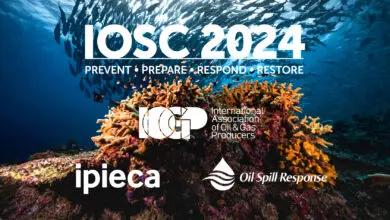
First Energy Transition recommended practices, guidelines, and technical paper published
IOGP’s new Energy Transition Directorate is acting as a catalyst for the industry’s low carbon agenda. Across our key areas of CCS, electrification, flaring and venting, energy efficiency and methane emissions reduction, we are leveraging the knowledge of experts with direct experience on the early low carbon projects and maximizing synergies with other industry associations.
The Directorate has now issued the first six out of 18 deliverables listed in the IOGP Low Carbon Work Programme to pursue efficiency and cost reduction in decarbonization projects.
IOGP Report 647 – Guidelines for the design and operation of flare gas recovery systems
These guidelines focus on continuous flaring sources in normal operations and address measures for source recovery, flare closure, and flare ignition. The report has been developed to assist engineering and operations staff at production, refining, and petrochemical owners and operators, and engineering staff at design consultancies and at engineering, procurement, and construction contractors.
IOGP Report 653 – Recommended practices for electrification of oil and gas facilities
This recommended practice provides recommendations for the electrification of oil and gas (and other petrochemical processing) facilities to reduce their greenhouse gas (GHG) emissions. The use of electricity for shaft power (compression, pumping) and heat (fired heaters, boilers) allows the facility to use low/no carbon electricity to reduce GHG emissions from burning hydrocarbons.
Gap analysis of standards and guides for carbon capture, transport, and storage
Carbon capture and storage (CCS) has been widely acknowledged as an effective component in the toolkit to achieve the targets for the year 2050 set by the 2016 Paris Agreement on climate change. More than twenty CCS facilities are already operational worldwide, several of which are operated by IOGP Member Companies.
This gap analysis follows a review of the existing literature on CCS and identifies missing or inconsistent components in the currently existing standards that apply to CCS activities.
The position paper and supplementary files explain the approach, methodology, and details of IOGP’s suggested amendments to the existing literature on CCS.
This Report provides a guide for developing a Measurement, Monitoring, and Verification plan for geologic storage of carbon dioxide and summarizes the key factors and steps that should be considered. This Report details how to evaluate and integrate an MMV strategy and select from the broadening array of technologies available to most effectively and efficiently monitor storage performance and the site-specific risks associated with each stage of the project lifecycle.
Electrification and Energy Efficiency Lessons Learned
These two documents, available to IOGP Members only, detail a sharing exercise, via a series of workshops, among Members to disseminate knowledge and experiences on both electrification and energy efficiency projects, and solutions adopted by some of the Members Companies. Those documents were used to inform the recommended practices, guidelines and technical documents developed so far, needed by the industry to:
- unlock potential economic electrification schemes
- drive widespread implementation of energy efficiency/optimization technologies and practices
which reduce greenhouse gas emissions for existing and greenfield onshore and offshore/floater oil and gas assets.



